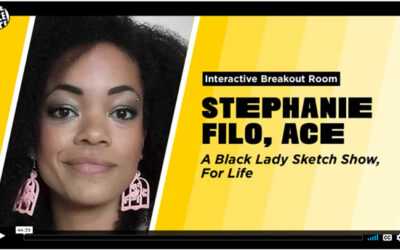Featured in Content:


One Flew Over the Cuckoo’s Nest won five Oscars® including Best Picture, both lead male and female actors and director for Miloš Forman. It also delivered an editing nomination to Richard Chew, ACE; Lynzee Klingman, ACE; and Sheldon Kahn, ACE.

The adaptation of Ken Kesey’s counterculture novel stars Jack Nicholson as Randle McMurphy, a patient who rails against the insanity of the asylum and its authority embodied by head nurse Mildred Ratched played by Louise Fletcher. For supervising film editor Chew, a favorite scene is the one during which McMurphy challenges Ratched’s authority by marshalling the patients to vote to be able to see the World Series on TV

“This is part of the escalating battle between Randle and Ratched,” Chew relates. “The passivity of the patients annoys McMurphy because he feels they should assert their independence and question the rules. This scene follows failed attempts by McMurphy to get the patients to defy the rules and he comes up with a brilliant way to ignite the imaginations of his fellow patients.”

In order to build momentum to the pinnacle of the scene when McMurphy is able to gather all the patients around him Chew uses the movement of camera and actors.

“It was sharply staged by Miloš, who had the patients all glued to their chairs, unable to summon the courage to object to the latest Nurse Ratched ruling. Now one of them, McMurphy, is leading the charge, by trying to gain another vote, thereby challenging Ratched. His intensity awakens them.

“As Haskell Wexler’s active camera stays with McMurphy while he moves around the ward, we cut in multiple reactions of the patients’ growing interest. We link what McMurphy is doing and how it affects the passive patients.”

Chew continues, “To counterpose this we select the most calm reactions and static postures of Nurse Ratched. She shows her authority through her measured speech and how she holds the ward master keys and logbook. We contrast this with the desperate movement of McMurphy.”

He notes that when McMurphy is at the window of the nurses’ station, shouting to have the TV turned on, “Nicholson builds his speech to ‘I want that TV turned on – right now!’ but the take we choose is the one where he turns his head away from her at the end of the line. He’s releasing the tension momentarily and going to sulk on the bench by the TV.

“At that point Ratched puts on her ward Muzak, the musical equivalent of the tranquilizers that the nurses routinely administer to medicate patients into passivity,” he says. “This so-called Muzak cue is part of Jack Nitzsche’s effective score. To Ratched, the music is an attempt to calm things down. Here, it sparks McMurphy’s imagination. He begins to narrate an imaginary game. His excitement draws the patients to return to see what’s going on. McMurphy is the cheerleader leading the patients to believe in what he is imagining. Their cheering gradually drowns out the Muzak, temporarily neutralizing Ratched’s control.

Chew relates that this is an important moment. “In prior scenes the patients are unbelievers. They didn’t feel they had any power to resist the authority of Nurse Ratched. After this moment, something of that balance has changed.”

4th Quarter, 2021
Editor’s Column
FEATURES
Animation Showcase
Dune
King Richard
Last Night In Soho
No Time to Die
The French Dispatch
EDITOR’S CUT
ACE International Partnership
Academy Museum Opens
EditFest Global 2021
In Memoriam:
Lewis Erskine, ACE
Jon Gregory, ACE
George Ohanian, ACE
STOCK FOOTAGE
Tech Corner
Cuts We Love
EditFest Sneak Peeks
ACE EditFest 2022
Download PDF version 4th QUARTER, 2022Message From the Board FEATURESThe Woman KingEverything...
Susana Benaim- 2022 EFG Breakout Session
ACE presents the Breakout Room Session featuring Kirk Baxter, ACE, editor of “The Social Network, Mank” Moderated by Megan Keen (Adobe) for ACE EditFest 2021.
Stephanie Filo ACE- 2022 EFG Breakout Session
ACE presents the Breakout Room Session featuring Kirk Baxter, ACE, editor of “The Social Network, Mank” Moderated by Megan Keen (Adobe) for ACE EditFest 2021.



